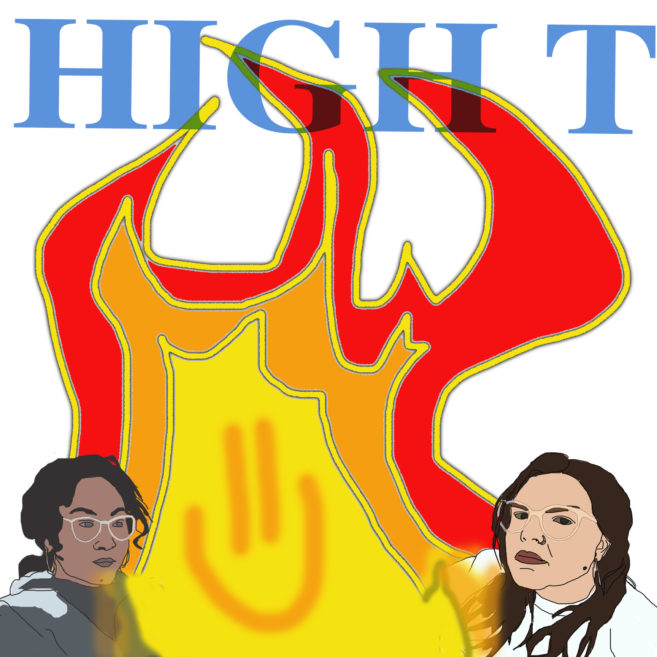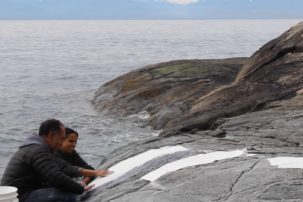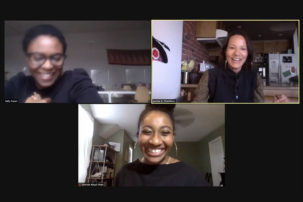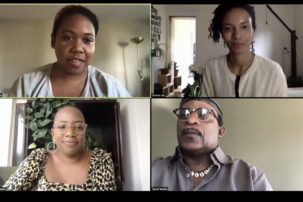IMANI ELIZABETH JACKSON: Did you see Atlantics, the Mati Diop film? S*an and I talked about the shots of the sea in that film.
S*AN D. HENRY-SMITH: They’re really expansive. In its vastness there’s a stillness, but there’s also such constant motion and you’re just caught in that dance. Just the way that the sun is hitting the water—in every shot you feel the weight of the sun in the way it’s being recorded through a lens. It’s overwhelming…it’s almost like you want to be shielding your eyes.
The sea is technically photographically hard to capture, and, beyond the technical, it’s a difficult thing to capture because its motion is so determined by galactic forces and other forces.
M. NOURBESE PHILIP: It’s interesting you’re talking about the sea because I was recently talking about swimming and Black or African-descended people. I was saying that in Tobago, which is where I’m from, a lot of fishermen—fisher people—don’t swim, don’t know how to swim. I grew up with this almost inherent fear of and respect for the sea.
I can swim and I love going to the sea but I never swim out. I’m not sure what that’s about. Is it a sort of inherited memory of what it has meant for us? But I’m also really transfixed by the sea. In Tobago I always want to rent a place that has a view of the ocean. There’s something about looking out to the horizon that I find very restful. Coming from that part of the world which is so astonishingly beautiful, the question for me about the sea is whether our ancestors—given what they were brought there to do and how they were brought there—could appreciate its beauty. Whether they had time to, whether they saw it, because that’s what transfixes me all the time—the majesty of it and also the beauty. It’s something I always ask myself: Did they see it? Could they see it?
SDHS: I also don’t swim. Basically, I can do like a foot above my head; I can float out that far. If I can go down and spring back up, I feel safe enough. My relationship to the sea has been permanently altered since December 2017. I was out with a friend. It was the first time I’d been in the water in Florida in a year or so. I wasn’t that far beyond my personal limit, but the water was a little choppy. Two things happened: I looked behind me and it looked farther than I’d ever been before, and I started to panic. But sort of beyond panicking, I forgot how to float, which seems impossible in salt water. I couldn’t figure out my own buoyancy. I started to struggle and then I started to head back to shore. I looked back and my friend was still out and he hadn’t noticed any of this. I was thinking about what my panic looked like, or how outwardly it manifested as almost a non-panic. But something was happening internally. I’ve gone swimming since, but there’s always a great hesitation, and a deep conversation, like asking permission to enter before I can dip my toe in.
IEJ: My large-body-of-water experience is mostly with Lake Michigan. It always felt like a sea when I was growing up, even though, of course, it doesn’t have salt water. It’s so big you can’t see the other side from any point. I was there constantly as a kid and didn’t really ever feel afraid to go out. But at some point in my early twenties I began to fear it and large bodies of water in general.
Last summer, when S*an and I were down in New Orleans, my best friend, who lives there, took me and his girlfriend to Pensacola, Florida, to go to the beach for his birthday. That was the first time, at least in my memory, that I actually went into the Atlantic. And it was such a strange and wonderful experience. I had accidentally worn clothes that were the exact shades of the ocean and the sky. It had been kind of a rainy day so the sky had this greyish tone to it and the ocean was doing all of these sorts of brushed olive greens, which were the colours I was wearing. And that felt really inviting. And so I was finally able to go in and float. It was a strange experience. I felt invited.
MNP: I was really struck by what S*an was saying about touching the ground. That’s exactly what I tend to do when I’m in the ocean. It’s like—as long as I can touch the ground, then I’m okay. But I know how to swim, so why, why this panic? But that idea of touching the ground and what touching the ground would have meant for us after four weeks, five weeks, six weeks on these death boats, arriving somewhere that was an end, but also a beginning.
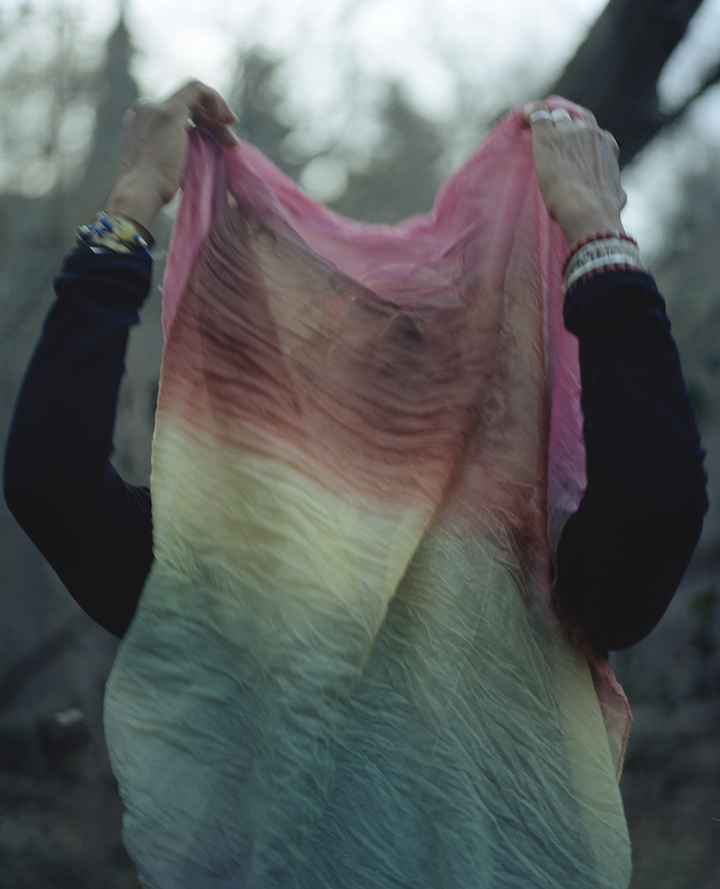 S*an D. Henry-Smith, dusk settles (NourbeSe behind the veil), 2019. Photograph, dimensions variable.
S*an D. Henry-Smith, dusk settles (NourbeSe behind the veil), 2019. Photograph, dimensions variable.
MNP: I’ve been thinking a while on the word blackness—the word is not transparent, but there’s an assumption that when you/we use that word, we all are on the same page. And more often than not it appears synonymously with the definitions that arise out of Afropessimism. It seems to me, however, that what marks the lives of Black people, African-descended people, is what I call excess—a quality of being “more than,” which has its own mathematical symbol. From the beginning we have insisted on being more than what the system defined us as. So many of our artists, our sports figures, our thinkers exhibit this quality.
Afropessimism is necessarily correct in observing that an excess of death marks Black life and, more often than not, the state’s intent toward Black folk is to control and obliterate that which exceeds, is “more than,” its limited, racist definitions. But that excess—of joy, beauty, resilience, talent—while perceived as negative by the dominant Eurocentric culture, is real and is what has always sustained us.
IEJ: Do you all feel that quiet and silence fit into that?
MNP: I think that one can be “more than” even in quiet and stillness, because it’s not necessarily about being outer-directed in our actions. It’s about capacity and potentiality. Faced with a demand to be always “on,” I think being able to be quiet and silent can be one of the most powerful “more thans.”
SDHS: Because it isn’t encouraged. It’s also just difficult to do. I think even for quiet people, it’s difficult to be quiet.
IEJ: I have been playing around in my head with the word unsettling. I just wonder what comes to mind for you all, in any direction.
MNP: Well. It’s a word that is very much in currency today, particularly in discourses about colonialism. We know one of the meanings of the word settle is to subdue, and in that sense it’s used as an integral aspect of colonialism. It troubled me, however, that the connotation of the word is almost anodyne, particularly when I think of how profoundly, and often fatally, disruptive this process was for the peoples of five continents—Africa, Asia, North and South America, and Australia. It seemed to me that a much more appropriate word was unsettle. For me, many of the connotations around the word settle have to do with gentle, loving actions, as in settling a baby or a child, but on each of these continents peoples were uprooted and unsettled from traditions, if not outright murdered. To this day the original inhabitants of these continents remain unsettled and uprooted, their lands appropriated. For me, unsettling is a much more useful word when I think of all that has happened as a result of colonial exploits. The pertinent question is whether we, Black folk, are caught by that word settler. I think it’s far easier for us to be caught by that word than by unsettler, because while Black folk have immigrated to Canada, for instance, and have been here for quite some time, it cannot be argued that we participated in unsettling the First Nations of this country.
IEJ: S*an, correct me if I’m wrong, but I think there are similar conversations here [in the US]. But it seems that, at least in my experience, it’s mostly white people who don’t seem to understand that Black people are not settlers. Which is not to say that there’s not still a tremendous amount of anti-Blackness coming from Indigenous folks, but there is at least the acknowledgement that they can’t put us into the same group.
MNP: It’s somewhat different in Canada. Where I tend to ruminate and sort of linger is in this issue of land, because for Indigenous peoples and the Europeans, the fight is about the land. And certainly I feel that in Canada, we’re outside of that fight because we are essentially landless. We don’t have a claim to the land, and what does that mean in that context? Can we ever become a part of the land? A part of the relationship with the land?
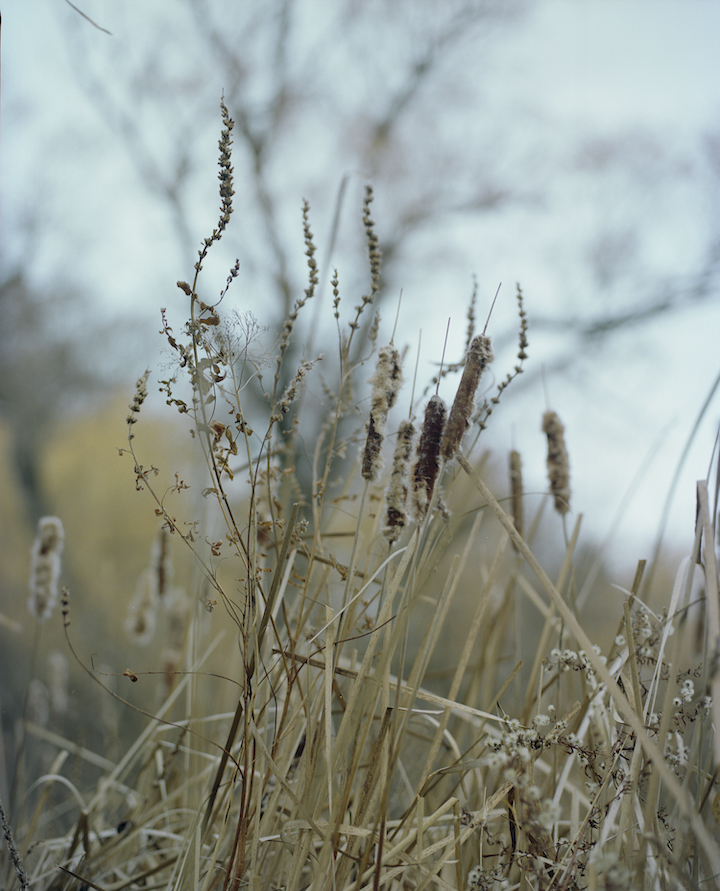 S*an D. Henry-Smith, windsplit, 2019. Photograph, dimensions variable.
S*an D. Henry-Smith, windsplit, 2019. Photograph, dimensions variable.
IEJ: I was also thinking about unsettled, like when you say that you don’t want your work to be easily digestible. And just thinking about the stomach, and a settled stomach versus an unsettled stomach. And then, affectively, feeling unsettled by a situation. Feeling topsy-turvy.
How do we do the work of unsettling that which has been brought to a settling point under force or under duress? How do we shake things up, as poets and as people whose political commitments are also so tied into our work at varying levels?
MNP: We’ve all been unsettled. Historically we have all been unsettled and we are unsettled. So the question is: How do we unsettle those who in fact unsettled us?
SDHS: I was thinking about the artist Cameron Rowland. In his practice, he’s thinking about property and ownership, reparations and tracing the financial origins and legacies of slavery in really complex and delicate ways. There’s a lot of legal research and archive-digging; he uses the law against itself. In Depreciation (2018), he created a non-profit with the sole purpose of purchasing an acre of land on a former plantation on an island off the coast of South Carolina. Freed slaves had resettled there under General Sherman’s Special Field Orders No. 15, but they were later removed and forced into sharecropping. With a restrictive covenant, Rowland appraised the land at zero dollars and made it so that it can’t be built on, worked on or inhabited. The value of the land can never accrue and is always at zero. In that sense, he has unsettled the land; he’s taken it back legally from the people who have stolen it through the very means by which it was once protected, and in doing so has rejected its ownership. Rowland calls this “antagonism to the regime of property as a means of reparation.” So the land also belongs to no one, and is also financially valueless forever, and is thus the earth’s again. And I think that is an unsettling.
MNP: I think that’s a wonderful example of unsettling in a sense other than how I’ve been talking about it—it’s a literal unsettling of settled land. Now to come to what you, Imani, talked about—the easily digestible and why I don’t want my work to be too easily digestible. I have often thought that if someone chokes on my work or words, brings it up and has to try to consume it again, then that is not necessarily a bad thing. There is a sense in which I feel that the West, which is all about consumption, most times without satisfaction, has a proclivity to consume Black culture, Black death, Black life in general, so the indigestibility becomes a way of protecting a way of being and knowing from those who mean us no good. Maybe Zong! best elucidates that for me, because I feel that Zong! is a code and the code picks the people who will be able to get behind it, so to speak.
IEJ: Yeah, I think right now I’m just interested in how many ways the word unsettled can be worked and how many ways it can be worked productively for us, rather than for those who would do us harm.

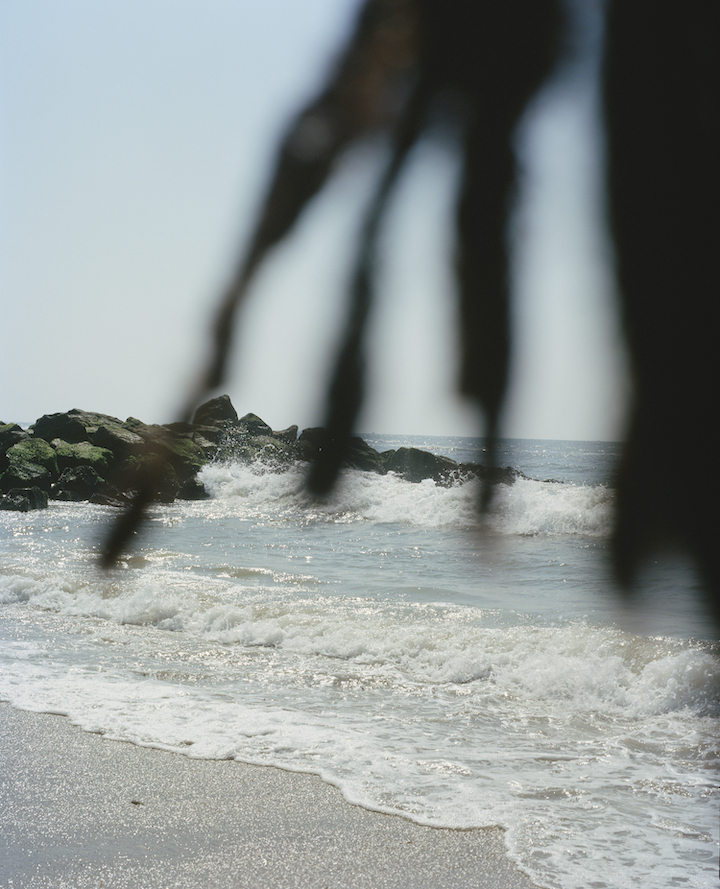 S*an D. Henry-Smith, Atlantic Beckoning, & just over your shoulder, 2019. Photograph, dimensions variable.
S*an D. Henry-Smith, Atlantic Beckoning, & just over your shoulder, 2019. Photograph, dimensions variable.
